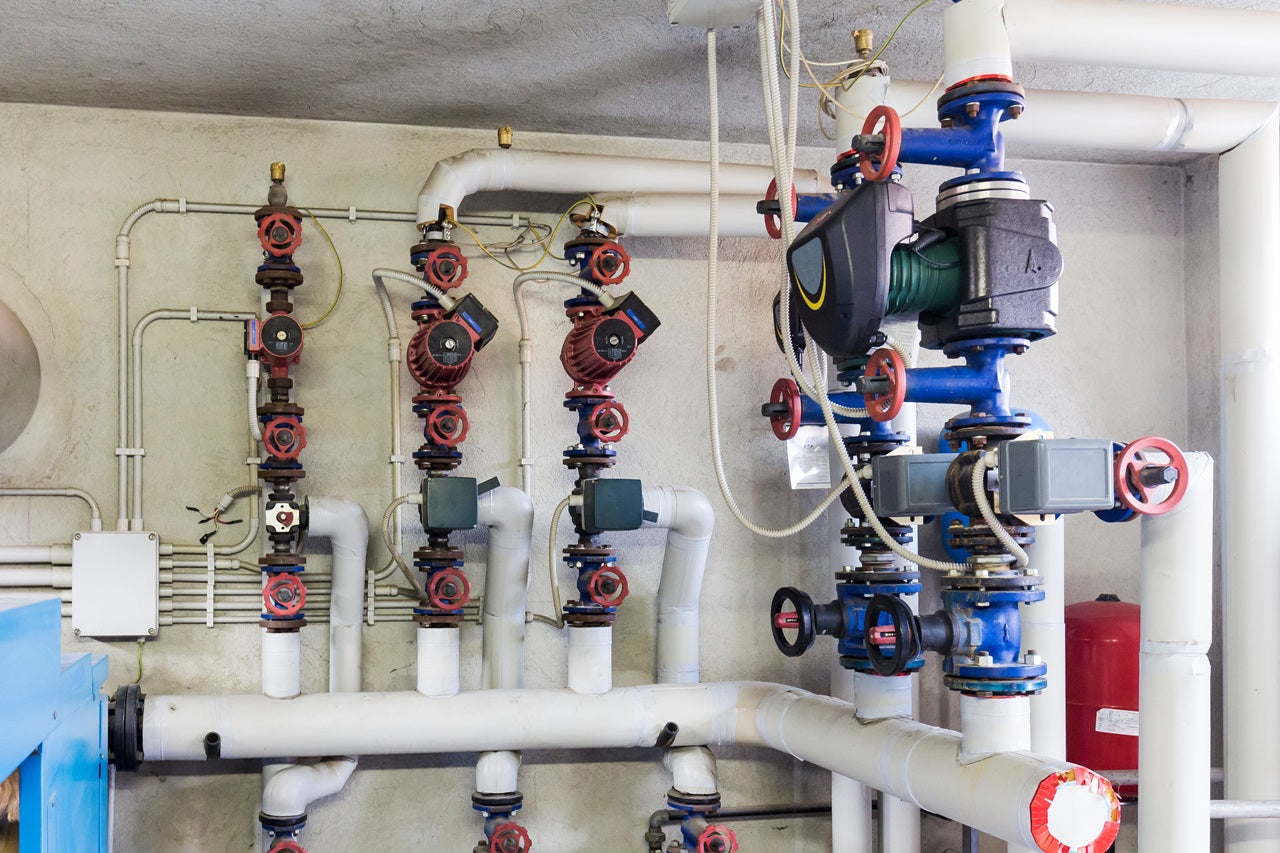Heating and cooling systems rely on circulation pumps to maintain consistent temperatures and efficient operation. A water circulation pump helps move heated or cooled liquid throughout a system, preventing temperature imbalances and reducing energy waste. Choosing the right circulation pump ensures that hot water reaches taps faster, reduces strain on heating units, and improves overall system performance. This guide explains how different types of pumps work and how to select one for your needs.
How Circulation Pumps Work
A circulating pump moves water continuously to maintain a steady temperature in heating and cooling systems. It keeps hot water flowing from a boiler or water heater to radiators, underfloor heating, or faucets. In cooling systems, it ensures chilled water moves efficiently to air handlers or cooling units. This process prevents temperature fluctuations and ensures comfort.
Discover our most popular product categories – find what you need today!
- Air to Water Heat Exchangers
- Water to Air Heat Exchangers
- Plate Heat Exchangers
- Oil Coolers & Intercoolers
- Tankless Water Heaters
Without a hot water circulation pump, users may have to wait for hot water to reach faucets, which leads to water wastage. In heating systems, stagnant water in pipes can cause heat loss, making boilers work harder. The water heater circulation pump helps solve these issues by keeping water moving and always ready for use.
Main benefits of a circulating pump:
- Reduces waiting time for hot water at taps
- Prevents heat loss in pipes by maintaining a steady flow
- Improves the efficiency of heating and cooling systems
- Reduces strain on water heaters and boilers
Newer models of circulation pumps come with energy-saving features such as automatic controls and temperature sensors. These features allow the pump to operate only when necessary, cutting down on electricity use. Some systems even use smart controllers that adjust water flow based on real-time demand.
Types of Circulation Pumps
Circulation pumps are available in different models, each designed for specific heating and cooling applications. Choosing the right circulation pump depends on system size, energy efficiency needs, and installation preferences.
Main Types of Circulation Pumps:
- Single-Speed Pumps
- Run at a fixed speed regardless of demand
- Common in older heating systems
- Simple to install but not energy-efficient
- Variable-Speed Pumps
- Adjust flow rate based on system demand
- Reduce energy consumption by only using power when needed
- Ideal for modern homes and businesses
- Pressure-Controlled Pumps
- Maintain consistent water pressure
- Reduce strain on pipes and appliances
- Useful in buildings with varying water demand
- Gravity-Fed Circulation Pumps
- Use natural convection to circulate hot water
- Less common today due to lower efficiency
- Often found in older radiator systems
A water heater circulation pump with a variable-speed function is often the best choice for homes. It keeps hot water available while using less electricity. High-capacity pumps with pressure control features in commercial buildings help maintain system stability.
Choosing the Right Circulation Pump
Not all circulating pumps are the same. The right choice depends on the heating or cooling system type, water demand, and energy efficiency requirements. Picking the wrong pump can lead to high energy bills, weak water flow, or even damage to the system.
Key factors to consider:
- System Size – Larger homes or commercial buildings require pumps with higher capacity.
- Flow Rate & Head Pressure – The pump must have enough power to move water through pipes.
- Energy Efficiency – Models with automatic control settings consume less electricity.
- Noise Levels – Some pumps are quieter, making them better suited for residential use.
A hot water circulation pump should also match the plumbing system. Some pumps are designed for open-loop systems, where water is constantly replaced, while others work better in closed-loop systems that recirculate the same water.
Benefits of Installing a Circulation Pump
A water circulation pump improves efficiency, comfort, and cost savings. Many homeowners and businesses install circulation pumps to get hot water faster and lower energy waste.
Advantages of a circulating pump:
- Instant Hot Water – Reduces waiting time at taps, saving water.
- Lower Utility Bills – Uses energy more efficiently, reducing heating costs.
- Consistent Temperature – Prevents cold spots in heating systems.
- Less Water Waste – Cuts down on unnecessary water use.
Some models include timers and motion sensors that activate only when hot water is needed. These features prevent continuous operation, saving electricity while ensuring convenience.
Common Issues and Troubleshooting
Like any mechanical device, a circulating pump may develop issues over time. Regular maintenance helps prevent problems, but some issues may still arise.
Common problems and solutions:
- Noisy Operation
- Could be caused by trapped air in the system
- Bleeding the air out of the pipes can help
- Weak Water Flow
- May result from blockages or a failing motor
- Checking for clogs or replacing a worn-out pump may be necessary
- Overheating
- Often caused by high system pressure or improper installation
- Adjusting pump settings can prevent overheating
- Leaks
- Loose connections or worn seals may lead to dripping
- Regular inspection can prevent serious damage
Proper installation and routine servicing help extend the lifespan of a hot water circulation pump and keep the system running efficiently.
Final Thoughts
A circulation pump is a practical upgrade for any heating or cooling system. Whether used in homes or commercial settings, it provides instant hot water, improves energy efficiency, and reduces waste. The right choice of a water circulation pump can ensure steady water flow, better temperature control, and lower operational costs.
Regular maintenance, correct installation, and selecting the right pump type are key to getting the most out of your system. A well-maintained water heater circulation pump lasts longer and prevents costly repairs.

